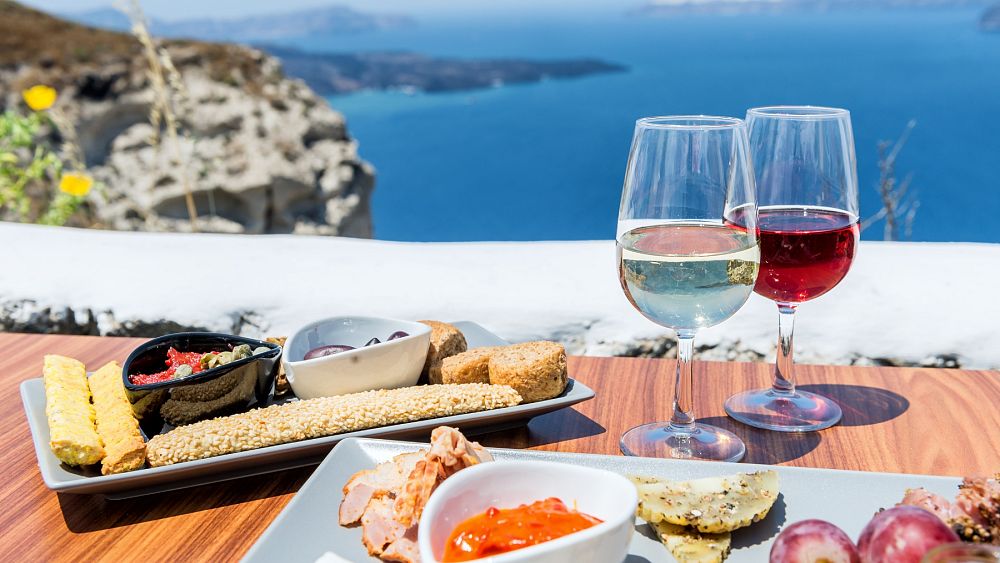One of the world’s most popular holiday destinations, Greece, needs no introduction. But while many associate the country with ancient monuments, white-washed buildings and the highly-instagrammable domes of Santorini, if you look beyond the usual tourism hotspots you’ll find hidden coves, quiet beaches and a flourishing food scene
Despite the quiet years of the pandemic, Greek tourism has shown great resilience, demonstrating how captivating this Mediterranean gem really is.
“We’ve had a wonderful 2022. After two and a half years that were really difficult because of covid, I think we had a full recovery for Greek tourism in 2022,” says Dimitris Fragakis, Secretary General at Greek National Tourism Organisation.
“Of course, we have new challenges for 2023 but I think that Greece will be in the top five countries for demand for this season, and we are optimistic that we're going to have a really great season.”
How many islands does Greece have?
Greece has over 6,000 islands and islets to its name, with 227 inhabited. While some islands, such as Crete, Mykonos and Corfu have become hugely popular with tourists, others are still somewhat under the radar. It is these islands that the Greek tourist board are now looking to promote, all while focusing on sustainability.
“Sustainability is one of our major goals for the next ten years. I think it's one of our major goals for tourism and of course it’s one of the major goals in society too,” explains Fragakis. “Because you can't have viable tourism if you don't protect your environment.”
Are there Michelin restaurants in Greece?
This strategy is already starting to pay off - in 2021 Greece was named as the most sustainable food destination in the world by Lonely Planet. Building on this success, the Greek Tourist Board has signed a deal with the Michelin Guide too, which Fragakis hopes will bring more food tourists to the food capital of Athens and the surrounding islands.
“You know, the gastronomy and products of Greece are unique. We are investing in this kind of tourism, actually some months ago we signed a really important agreement with the Michelin Guide in order to put Greece in the guide,” explains Fragakis.
“It's really important for us because it's high end tourism, people can go around the country and see our gastronomic products and the people who make them.”
Which islands in Greece are best for foodies?
While you might want to snap the sunsets of Santorini or explore the ruins of Delos during your trip to Greece, Fragakis wants you to explore some of the country’s lesser known islands.
“Our goal is to enlighten people about some destinations that they don’t know, because Greece isn't only the well-known islands and the well-known destinations,” says Fragakis.
“Greece is a destination as a whole country, all through the year.”
Tilos, a small island in the Dodecanese group between Rhodes and Kos, is a lesser known island that ticks both the food and sustainability boxes.
What is Tilos like?
If you want a relaxing holiday on an island known for sustainability and with some great local food products, then Tilos is for you. The island even won an EU award for its transition to green energy and now has a hybrid power station where it harnesses the power of the wind and the sun to produce its own energy.
Home to a large protected nature reserve, many rare birds can be found here too, including Eleonora’s falcon and the European bee-eater. The island was once home to some even rarer wildlife - over 4,000 years ago the last dwarf elephants of Europe could be found here.
Nowadays, the most touristy area on the island is the port town of Livadia, which sits at the bottom of a mountain. Here you’ll find restaurants serving some of Tilos’ most famous dishes, including stuffed goat baked in the oven, pan-fried vegetable pies and oven-baked pork with wheat.
If you’ve got a sweet tooth, make sure to try Pouggakia, a traditional type of pastry that’s filled with almonds and sesame.
What is there to eat in Donousa?
The most northerly island of the Eastern Cyclades, Donousa is another island which has committed itself to sustainability, particularly within the food and drinks industry. Research carried out in 2018 revealed that 45,000 plastic glasses were being used on the island, but by 2019 this figure had been halved.
Named after Dionysus, the ancient Greek God of wine, the island is 13.65 square kilometres in size, and the perfect destination for hiking among the fragrant wild herbs that line its rocky hills and mountains.
It is these herbs that make the food on Donousa so delicious. Most of the restaurants on the island are traditional tavernas, where you’ll find a mix of seafood and meat dishes, alongside locally grown vegetables.
Make sure to check out Avli Donoussa, a restaurant which specialises in seafood, including sardines and calamari, plus delicious dishes like feta in filo pastry.


